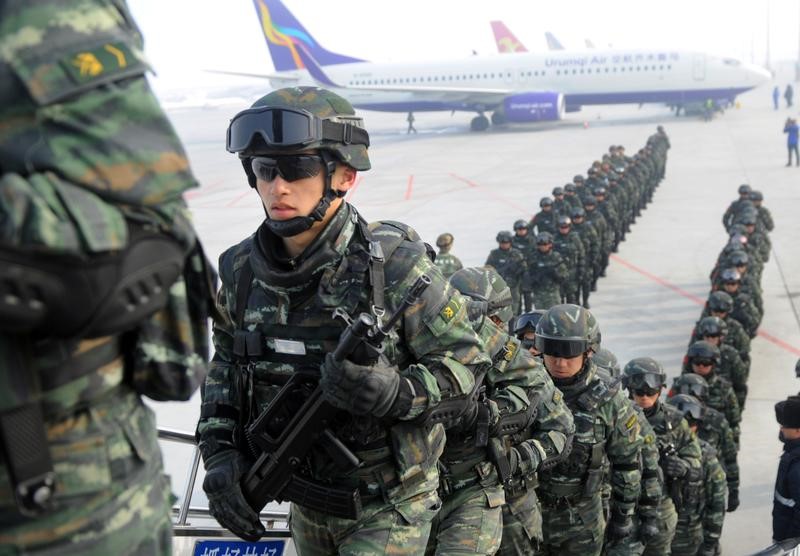BEIJING (Reuters) - The number of violent attacks by "terrorist cells" in China has dropped due to increased security measures, state media reported on Tuesday, however it also cited experts as saying the level of attempted violence remains high.
China says it faces a serious threat from violent extremism, particularly in its western region of Xinjiang, where hundreds of people have been killed in recent years in unrest between mostly Muslim ethnic Uighurs and majority Han Chinese.
Officials say there is a campaign by separatists there who want to set up an independent state called East Turkestan. However, rights groups doubt the existence of a coherent militant group in Xinjiang and say Uighur anger at repressive Chinese policies is more to blame for the unrest.
"Violent attacks involving or orchestrated by terrorist cells" dropped in 2016, the official English-language China Daily newspaper reported, citing data from the Law Institute of the Chinese Academy of Social Sciences.
However, Li Wei, an anti-terrorism expert at the China Institutes of Contemporary International Relations, told the China Daily: "People should realise that more attacks have been foiled at the planning stage. We haven't seen a significant drop in the number of attempted attacks."
The figures were not made available by the academy, the paper said. It said many "terrorist suspects" were born in the 1980s and 1990s, and that many cells were formed among family members.
According to the paper, the academy also said the threat of such attacks "might become more serious since overseas terrorist groups now have stronger influence in China and the connection between domestic and foreign terrorist groups has grown deeper".
Late last month, Uighurs purportedly fighting with the Islamic State militant group in Iraq released a video threatening China and vowing to shed Chinese blood.
Diplomatic sources in Beijing say that violence occurs more regularly in Xinjiang than is reported by authorities.
Thousands of Chinese armed police have staged mass parades and rallies in Xinjiang in recent weeks, in what officials have called a "declaration of war" on militants and separatist forces.

Along with the show of force, authorities have rolled out tough measures, from helicopter patrols to hefty rewards for tips, and mandatory satellite tracking for some vehicles.